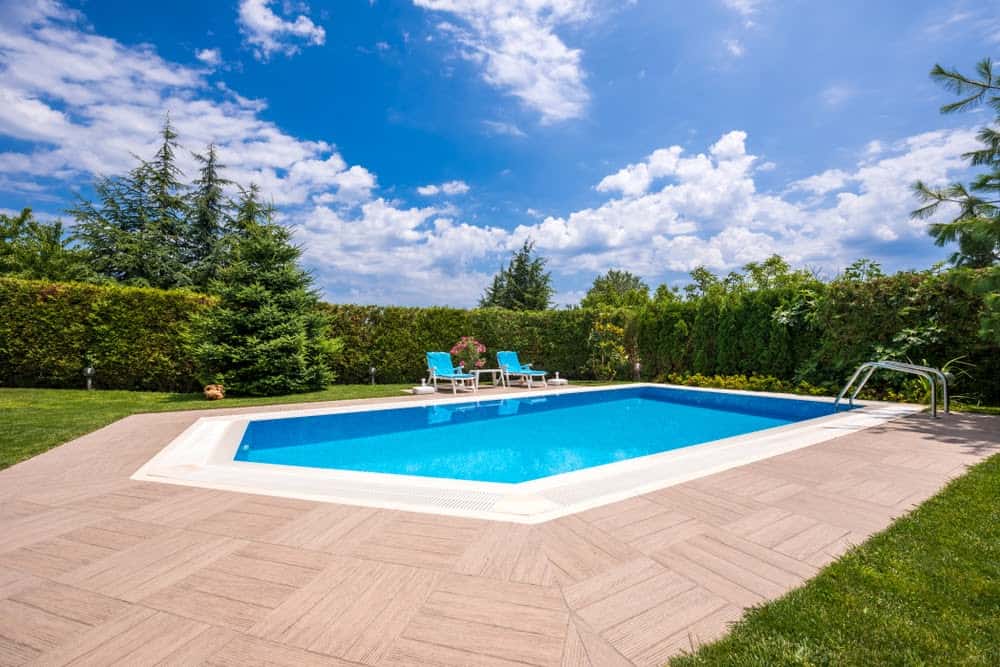If you’re thinking of putting in a pool, it’s wise to test the waters first. By carefully debating the pros and cons, you’re less likely to end up unhappy – or underwater!
Your “Residence Ratio”
Do you plan to stay in your home for the foreseeable future? At least long enough to fully enjoy your pool? Or is it possible you’ll relocate soon? If you’re going to invest in a pool, you want to make sure you’ll actually live in the home long enough to make it worth spending the money on.
A Reality Check
Will you really use the pool often enough to justify the cost? Be honest: If you work all the time, travel a lot or have other time-consuming commitments – such as kids’ sports, etc – you might not enjoy your new water world all that often. Is the payoff worth the big payment?
Ground Swell
Which type of pool is best? Inground or above ground? According to the Association of Pool & Spa Professionals, there are about 5 million inground pools in the U.S., compared to about 3.5 million above ground pools. But the market for above ground pools (also called onground pools) has grown more quickly in recent years.
For many people, there isn’t any real choice: an inground pool doesn’t fit their budget. Or, there’s no good spot for it. But for others, the decision’s tougher – and involves a lot more than just dollars. Here are some of the factors to consider when deciding on the right pool for you and your family.
One thing’s for certain: An inground swimming pool is far more expensive than a comparable above ground pool. In fact, for the cost of an inground pool on the lower end of the scale, you can probably get a top-of-the-line above ground pool – and still have money left over for pool toys.
Oasis Or Oh, Why?
An inground swimming pool generally adds value to your home, but probably not nearly as much as you put into it. Still, that’s better than an above ground pool, which can actually reduce property value – especially if you live in a warm climate where inground pools are typical, or if you have an above ground pool that’s not nice enough for your property.
Neither type of pool makes much sense as an investment because there are almost always more effective ways to spend on home improvement.
Still unsure whether an above ground or inground pool is right for you? Some pool experts suggest first trying an above ground pool. If you choose, you can then “upgrade” to an inground when you have a better idea of what it’s like to have your own backyard pool.
A Taxing Decision
Swimming pools, especially inground ones, are usually taxable. However, in most communities above ground pools don’t cause an increase in property taxes because they’re not permanent structures.
Swimming Hole Or Sink Hole?
You may need to sink more into that inground pool than you bargained for, since it has
installation costs an above ground doesn’t:
- Excavation
- Professional installation (may or may not be necessary for an above ground pool)
- Pool safety fence
- More expensive materials
- Additional permits
Treading Water
Will you be able to afford the pool upkeep? Both above ground and inground pools require a lot of the same maintenance: cleaning, filtering and keeping the right chemical balance. Inground pools – particularly concrete and fiberglass ones – generally hold up much better than above ground ones.
That said, when an inground pool does need renovations or repairs, it can be an expensive proposition: It’s a permanent fixture, whereas an old above ground pool can simply be replaced.
Life Preserver
A stationary above ground pool has a built-in safety feature that’s lacking in inground pools: pool walls extending above ground. Well over half of fatal drownings happen in inground pools, according to the Consumer Product Safety Commission, (and another 10% happen in portable above ground pools, such as inflatable and plastic kiddie pools.)
Although above ground pools might be statistically safer, an inground pool with the right safety features (including a fence) is less likely to be the scene of an accident.
Flotation Devices
Once you decide to take the plunge, there are four good options to finance a swimming pool: home equity loans (HEL), home equity lines of credit (HELOC), cash-out refinance mortgages, and personal loans. Contact Mid America Mortgage today to learn how we can help ensure things go swimmingly.



